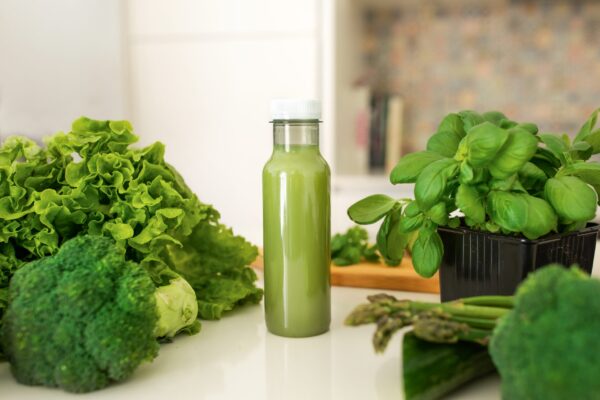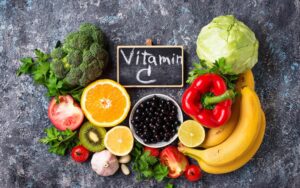Keto diets offer amazing weight-loss advantages; vegetarianism has long been considered part of fitness culture. Both have amassed large followings.
Keto (also referred to as Ketogenic diet) involves eating foods high in fat while providing limited or no carbohydrates and only small amounts of proteins, while following a vegetarian menu plan with rich carbohydrates yet lower calorie counts is considered more suitable.
Vegetarian diets have long been seen as effective solutions for cleansing, weight loss and leading a healthier life. Unfortunately, however, vegetarianism involves the consumption of many carbohydrates-rich vegetables and fruits which could potentially contribute to weight gain; conversely a Keto diet tailored specifically for plant eaters could offer the perfect way to meet body goals more successfully and lose weight more rapidly.
Given their distinct diets, can vegetarians and non vegetarians strike an equilibrium through finding common ground? Absolutely – here’s everything you should know about Keto diet for vegetarians.
Planning a Balanced Vegetarian Keto Diet
Traditional vegetarian diets come in various varieties, depending on how much seafood, dairy products or eggs one consumes; lacto-ovo veganism has become the more widely adopted lifestyle across America, Canada, and Europe; its most well-known variations being lacto-ovo vegan lifestyle which involves only eating dairy and eggs while forgoing poultry, seafood or even meat products.
Vegetarians seeking an Keto diet must abstain from all poultry, meat and seafood products while restricting plant-based carb-rich foods; typically eating 70-75% fat-based calories along with 20-25% protein consumption as well as 5-10% of total carbohydrates intake.
Fat is at the core of every healthy diet plan; whether ketogenic or vegetarian. Fat consumption plays an essential role.
Choose low-carb, high-fat seeds and nuts like almonds, walnuts hazelnuts pecans Brazil nuts Macadamia nuts coconut flax and Chia seeds as choices to satisfy this nutritional goal.
If dairy isn’t your thing, try choosing healthy fats made from nondairy sources such as coconut cream avocados olives avocados and cocoa butter instead.
Oils provide vegetarians who follow the Keto food plan with essential fat sources for fuelling the diet; such as avocado oil, Flaxseed Oil coconut Oil Macadamia Nut Oil as well as olive Oil are among the top choices available to them. Select cold pressed varieties for optimal performance of vegetarian Keto diet plans.
Protein and Fats A vegetarian diet may contain significant protein and fat sources that play an essential part of Keto dieters’ energy needs.
If your diet includes animal products, then include cheddar, gruyere and parmesan as hard cheeses along with fat cottage cheese, sugar-free Greek eggs and goat cheese as part of the Keto diet. For an alternative approach that might also accommodate vegetarians or vegans: tempeh-based nut dairy products as well as tempeh natto nutritional yeast may all make excellent sources of plant-based proteins for Keto eating plans.
Carbs
Given the wide array of fruits and vegetables on offer, it may be beneficial to keep a list of carbs content with you so as to select those most suited to follow a keto diet diet plan.
Vegetables such as leafy greens, asparagus, cucumbers, broccoli florets, cauliflower flowers and sprouts; onions; green beans, cabbage; eggplant; mushrooms ; garlic; and tomatoes can easily fit into the Keto Diet for vegetarians.
Fruit selection can be challenging as many produce contains carbohydrates in the form of sugars. Raspberries, blackberries, blueberries and strawberries are some of the healthiest choices when selecting fruits for consumption.
Tips to Help Vegetarians Implement Keto Diet
As Keto Diet for vegetarians limits what food items can be consumed, preparation is of vital importance if success with weight reduction goals are to be reached. Failure to prepare meals and purchase items early could leave hunger knocking at your door and you feeling discouraged and lost on this weight-reduction path.
Avoid common vegetarian protein sources
Attracting vegetarians may mean offering options like legumes, quinoa, pulses and buckwheat as staples on their menu, however the Keto diet disapproves. Also disapproved is dairy with reduced-fat content along with vegetables containing significant starch or naturally sweet fruit as these contain sugar content, or low-fat milk products are prohibited on Keto diet plans.
Select protein with high quality standards.
An all-vegetarian Keto diet typically requires between 60 to 100gms of protein per day for optimal performance, making sure the right choices like unsweetened Greek yogurt hemp seeds eggs parmesan peanut butter that does not include sweetener almond or peanut butter semi hard and soft cheese such as Brie provolone cheddar Swiss Camembert Gouda cottage cheese are made up of good sources of protein as are firm tofu tempeh natto Edamame beans might even work!
Increase vegetable consumption while simultaneously decreasing carb intake.
Vegetables were chosen for Keto due to their rich source of fiber and nutrients and extremely low-carbohydrate content – spinach, zucchini, avocados, Brussels sprouts and cauliflower are among some excellent choices that should help facilitate weight loss during this lifestyle.
Season Well
Increase the effectiveness of your Keto diet by flavoring dishes with herbs such as cinnamon, basil and rosemary which have low carb counts while still adding plenty of flavor! They provide great low-carb solutions! Here Order Capsiplex fat burner Now & Save 40% On Your Initial Purchase
Start on the Keto Diet as Vegetarians is achievable and should fit seamlessly with your fitness objectives. Select healthy fats for inclusion on this Diet for Vegetarians and plan ahead so it works with ease for you!




